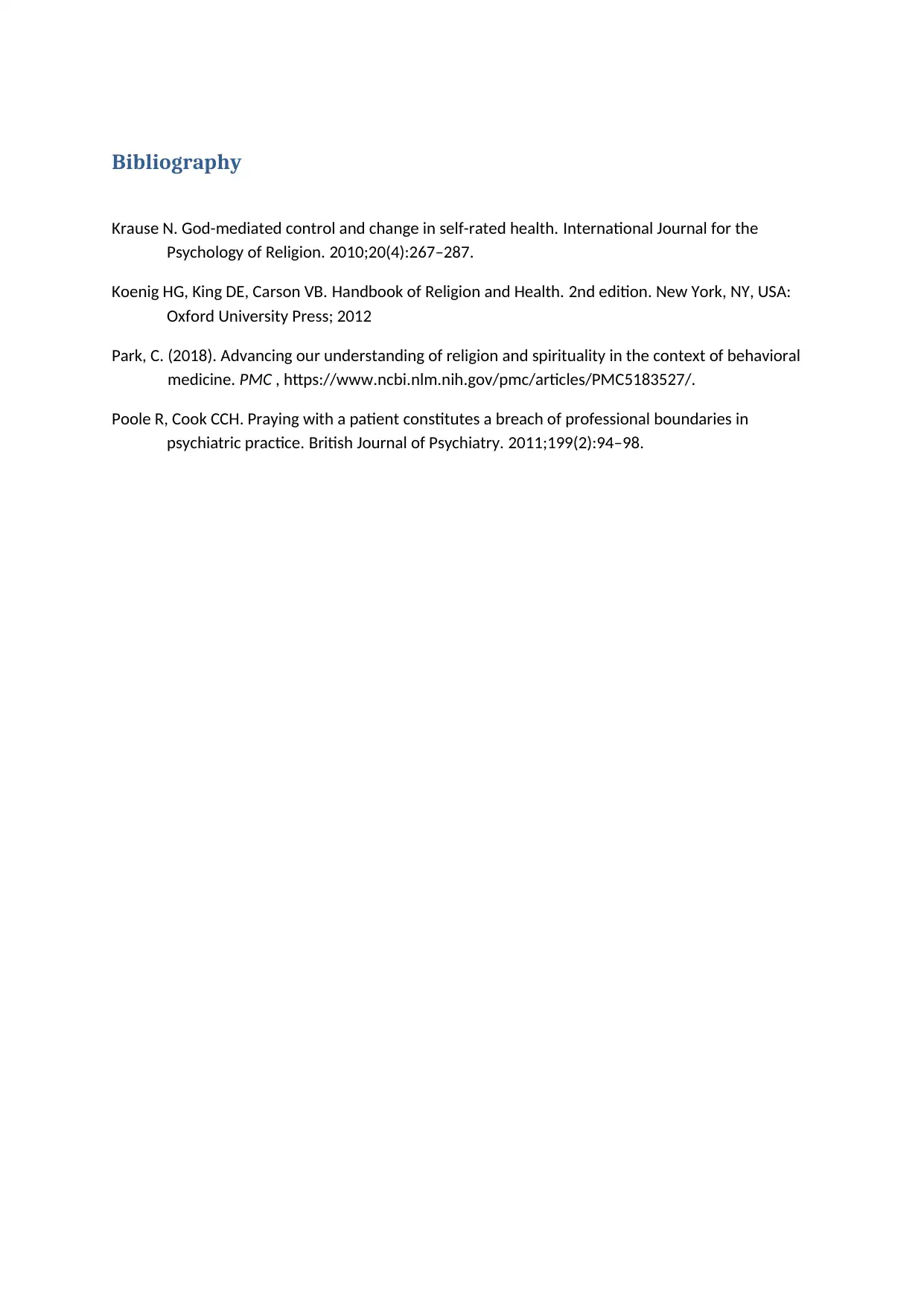Psychology of Religion: Research and Spirituality Discussion
VerifiedAdded on 2023/03/30
|5
|581
|481
Discussion Board Post
AI Summary
This discussion board post summarizes an article by Park (2018) on the role of religion and spirituality (RS) in behavioral medicine, highlighting that a significant portion of the global population considers RS a cornerstone of their lives. The discussion delves into survey methods used to study spiritual experiences, such as large-scale longitudinal investigations focusing on religious practices like prayer, scripture reading, and festival celebrations. It addresses major challenges in RS research, including the subjective nature of spiritual experiences and potential biases of researchers. The post also explores how researchers can mitigate personal biases by focusing on the commonalities among different religions when designing behavior-based interventions. The discussion concludes by emphasizing the need for careful consideration of these factors when conducting research in this complex area.
1 out of 5








![[object Object]](/_next/static/media/star-bottom.7253800d.svg)